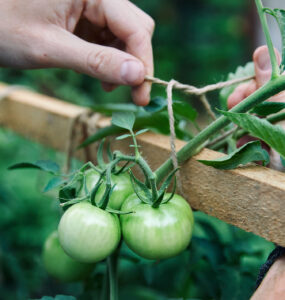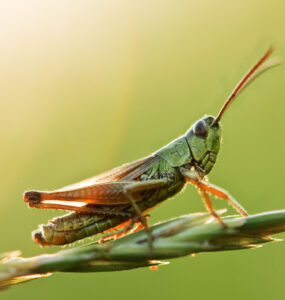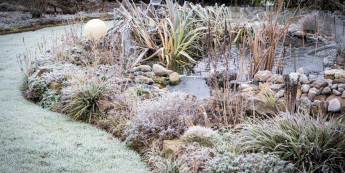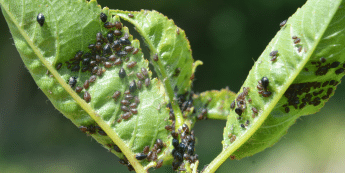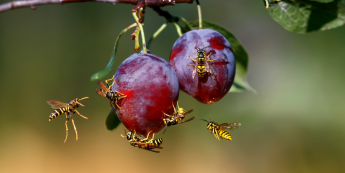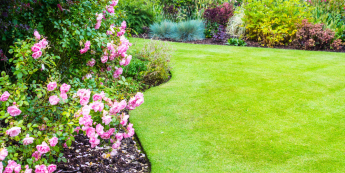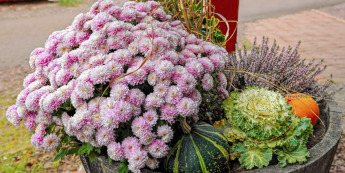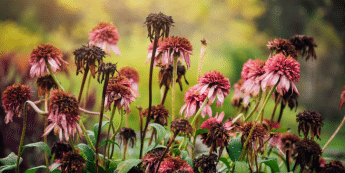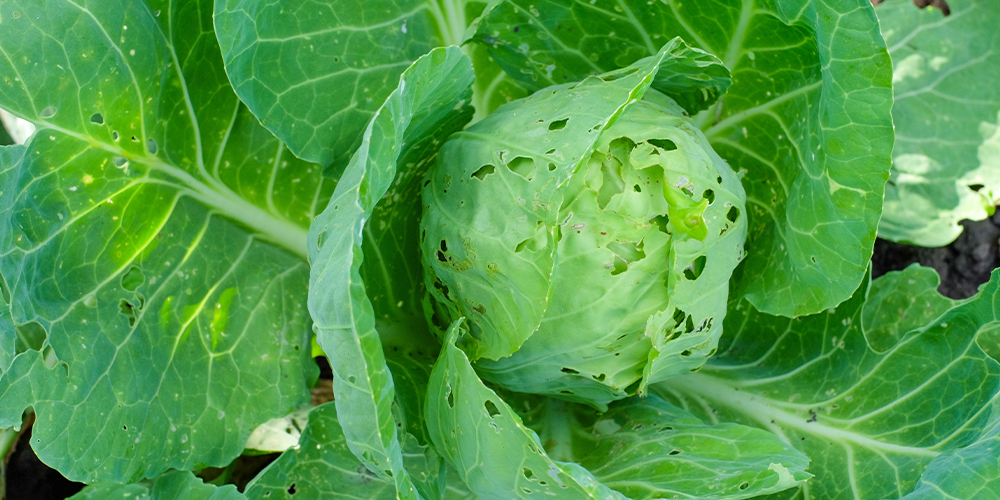
More and more Albertans are getting excited about growing their own food at home, but it’s always a total bummer when vegetable garden pests barge in to rain on their parade! With all the care, effort, and time that goes into gardening, it really sucks to lose out on your tasty homegrown veggies, all because a bunch of greedy bugs got to them first. Luckily, there are plenty of natural solutions for getting rid of garden pests, so if you spot early signs of infestation, you have a high chance of saving your garden from those rascally bugs!
3 Common Vegetable Garden Pests And How To Beat Them
While there are many different garden pests that can wreak havoc on our plants, some are particularly notorious for sneaking into Alberta gardens and chowing down on our vegetables. Be on the lookout for these three offenders topping the list of Alberta Gardener’s Most Wanted Criminals:
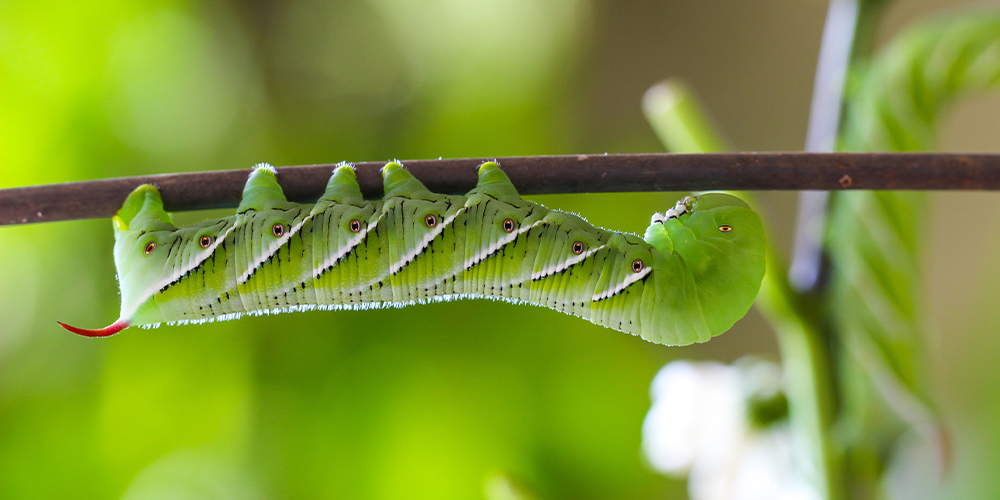
Tomato Worms
Also known as hornworms, these pesky caterpillars work fast and efficiently, so if you don’t intervene quickly, your tomato crop could be toast. At maturity, they develop into the five spotted hawk moth, which, to be honest, is a pretty badass name for a bug. But to get that big and tough, they have to do a whole lot of eating in their early stages, so that’s why your tomato plants are at risk.
Hawk moths usually lay their eggs on the underside of plant leaves””particularly tomato plants””so the larvae have a safe place to hide, and a steady supply of plant material to munch on. They also tend to hang around eggplants, potatoes, and peppers. Generally, they start at the top of a plant and eat their way down, so if you notice leaves full of holes on the top of your plants, you should start checking for tomato worms. They also tend to leave little black dropping behind, on the tops of the leaves.
So, here’s the thing: tomato worms can be kind of huge. Like, up to five inches long. They’re big and fat and green with a weird horn coming out of their butt, but they’re totally harmless to humans. If you’re squeamish around bugs, you may need to enlist the help of a friend, because the best way to get rid of tomato worms is by picking them off by hand and dropping them into a bucket of soapy water.
If you’ve got a pretty significant infestation, you can also use a natural soap spray to get rid of the worms, but you really have to soak them for it to work. Worst case scenario, you can use an organic insecticide to kill off the worms, but you should try to only rely on insecticides when you have no other viable options. Reducing pesticide use helps to keep other bugs safe, like butterflies and bees!
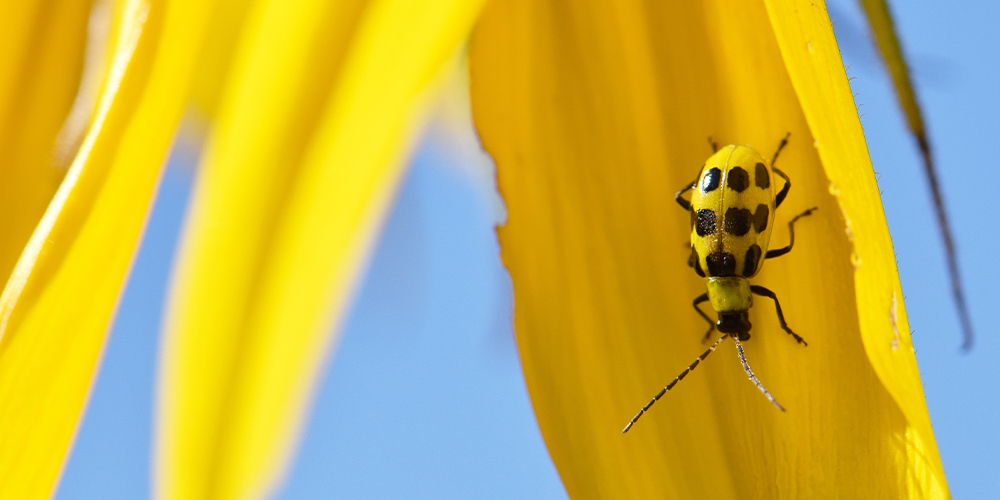
Cucumber Beetles
Though their name suggests a liking for cucumbers, these garden pests are also big on squash, watermelon, and pumpkin plants. If you notice your mature vegetable plants have yellow, wilted leaves covered in holes, or if your new seedlings have had their stems chomped on, you may have a cucumber beetle problem.
There are two kinds of cucumber beetles: striped ones and spotted ones. The spotted ones are especially annoying because they aren’t too picky about what types of vegetables they like to feast on. They’re around ¼ inch long and are bright yellow with black markings. The larvae look like white worms with black heads and have six legs. Yuck!
Cucumber beetles pose a threat to your vegetables throughout their life cycle. When they first come out of hibernation, they munch on new seedlings, which usually kills them. Then, they lay their eggs, and the larvae feast on plant roots. Once they mature, they’re hungry and ready to go totally hog wild on those plants. They also tend to carry diseases that can hurt your plants, so you’ll definitely want to drive them out.
Since the plants they tend to eat are a bit more delicate, it’s best not to grab the heavy-duty pesticides right away. If possible, shake them off and suck them up with a handheld vacuum. They’re hard to pick up, but some folks say it’s a lot easier if you wear a rubber glove and coat it in petroleum jelly. You can also place sticky traps around the garden to catch them, or plant some nasturtium to help repel them.
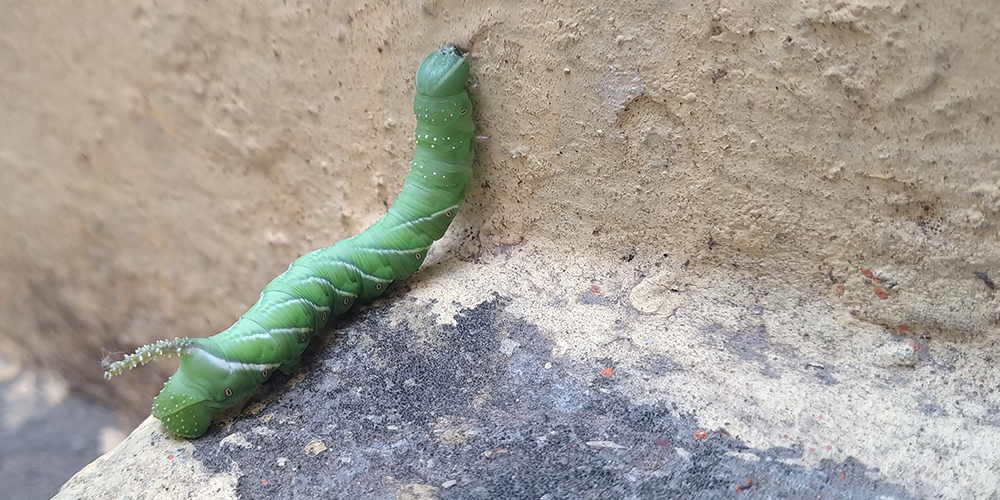
Cabbage Loopers
These little green worms may look innocent, but they can eat three times their body weight in a single day! So, if you’ve got a whole bunch of them feasting on your plants, you’ve got to get in there fast before they take over. When they’re young, they tend to feed mostly on the bottom of leaves, but as the worms get older, they’ll burrow right into the centre of your cabbage crops, leaving behind a pretty nasty trail of waste.
Cabbage loopers feed on other cruciferous vegetables like broccoli, kale, and cauliflower. Be sure to check the undersides of the leaves regularly for any signs of eggs, and wash them off with soapy water. While these worms can be kind of a pain to get rid of, there is some good news, lots of beneficial insects like to eat them, so we’ve got some good guys on our side! Wasps and moths are especially keen on eating cabbage loopers, and planting aromatic herbs such as dill, fennel, and cilantro will help to attract more predatory bugs to come and eat up the worms.
There are two types of natural insecticides that work incredibly well at killing cabbage loopers without damaging your plants. The first option, BTK sprays, these are made from a naturally occurring soil bacteria that kills worms without posing a threat to pollinators or family pets. The other option, spinosad-based sprays, use natural compounds derived from fermentation. Both are completely safe and effective to use!
Are you dealing with some plant pests that you can’t identify, or are you struggling to troubleshoot vegetable garden issues? Our experts at Salisbury are happy to help point you in the right direction and offer some solutions for pest and disease control. We’re open for shopping, but you’re also welcome to use our webstore, or place an order over the phone for curbside pickup or delivery!


